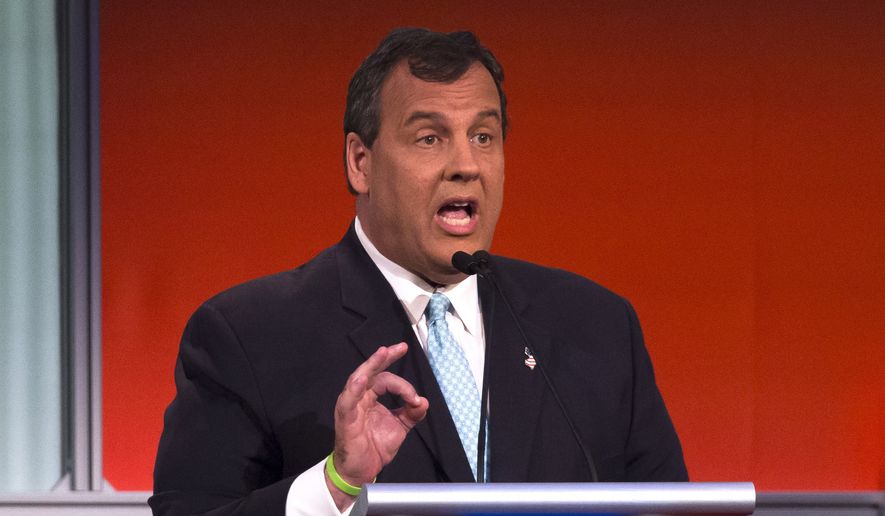New Jersey Gov. Chris Christie on Monday said Mexico is unlikely to pay for a wall on the United States’ southern border, pouring a bit of cold water on that plank of Republican presidential candidate Donald Trump’s newly-released proposals on immigration.
Mr. Christie’s plan to secure the border involves “walling and fencing in certain places, not the entire border — it doesn’t make any sense,” Mr. Christie said Monday on CNN’s “New Day.”
“The United States’ll pay for that,” said Mr. Christie, a 2016 GOP presidential contender. “This makes no sense. I’ve met President [Enrique] Peña Nieto a number of times. I don’t think if we present him with a bill, he’s going to pay for it, and this is not a negotiation of a real estate deal, OK? This is international diplomacy, and it’s different — and it’s different.”
Mr. Trump on Sunday released his policy proposals on immigration. Among other items, his plan says that until Mexico pays for a wall on the U.S.-Mexico border, the U.S. would impound remittance payments gotten from “illegal wages” and increase fees on temporary visas issued to Mexican CEOs and diplomats, border crossing cards, NFTA worker visas from Mexico, and ports of entry to the U.S. from Mexico.
“So we should build it in those places, especially urban areas along the border where it’s more difficult to patrol, you have a greater volume of folks,” Mr. Christie said. “Second, we need to have FBI, DEA,and ATF agents embedded with border patrol folks to deal with the criminal element. They’re much more trained to be able to deal with gun-running an drug-running than our typical border agents are.”
The New Jersey governor also called for using drones and other electronic surveillance techniques on the more difficult parts of the border “to show where we need to deploy human resources more effectively.”
SEE ALSO: Donald Trump’s immigration plan calls for border wall funded by illegals’ U.S. wages
Mr. Christie also said he would go after employers of illegal immigrant labor.
“We have people in this country who are employing folks illegally,” he said. “I would make the fines so large that any profit they made is not only wiped out, but then some — absolutely. Have to do it, ’cause otherwise … people are going to continue to keep coming. Because if they believe they’re going to be employed, they’ll continue to come, and they’ll find ways to come and it’ll be much more difficult to stop [them].”
• David Sherfinski can be reached at dsherfinski@washingtontimes.com.




Please read our comment policy before commenting.